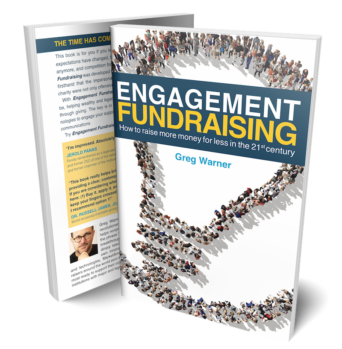We use cookies to ensure that we give you the best experience on our website. By continuing to use this site, you agree to our use of cookies in accordance with our Privacy Policy.
 Login
Login
Your Role
Challenges You Face
results
Learn
Resources
Company
4 forces primarily responsible for making people charitable


According to the author of a book titled WHO REALLY CARES, Arthur C. Brooks, there are 4 forces in American life that are primarily responsible for making people charitable:
- Religion
- Skepticism about the government’s involvement in people’s economic lives
- Strong families
- Individual entrepreneurism
(NOTE: He’s the president of the right-leaning think tank, the American Enterprise Institute. Some people believe his research was seriously flawed. I’ll let you decide.)
Here’s why (according to Brooks’):
1. Religion – People who pray every day (regardless of whether or not they go to church or another place) are 30% more likely to give money to charity than people who never pray. Simply belonging to a congregation— whether one attends or not— make a person 32% more likely to give. People who say they “spend a great deal of effort” to their spiritual lives are 42% more likely than those devoting “no effort”. People who say “beliefs don’t matter as long as you are a good person” are dramatically less likely to give to charity and to volunteer compared with people who do believe that “beliefs matter”. Nineteen of the twenty-five states with the fewest houses of worship per capita were below the national average in all types of household giving.
2. Skepticism about the government’s involvement in people’s economic lives – Brooks wrote that politicians and a significant number of people take credit for being charitable without spending their own money because they, instead, support policies of income distribution through taxation and this affects their private giving. The result? Between 1933 and 1939, as spending to aid the needy went from zero to more than 4% of GDP, researchers concluded that government funds were directly responsible for nearly all the drop in church charity. Another study in 1985 came to the same conclusion. Other data shows that decreases in state funding stimulate charity. For instance, in the 1980’s when President Ronald Reagan cut spending on social programs, charitable giving rose by 1/3. That point was surprising to me. A real head-scratcher!
3. Strong families – He wrote that “people who have children are more charitable than people who don’t. Given that children are expensive and time-consuming it is surprising that parents make available more of their time and more of their money than non-parents. Generous parents make for generous kids. The question for most parents is how best to teach generosity to their children. Also, married adults (especially with children) give and volunteer at far higher rates than those who are single or divorced. So, single parenthood is a disaster for charity (21% less likely to give to charity than singles without children and 26 percentage points less likely to give) even if they have the same income, education, religion, and so on.” Although other research has found that childless bequestors give much more in their after-lifetime donations. Nonetheless, could broken homes and poor parenting result in less charity?
4. Individual entrepreneurism – Brooks doesn’t go into this as deeply as the other components but he does remind us that entrepreneurs are among the most charitable people in society. Of course, that makes sense because they have a lot of money. But apparently, it also makes them more charitable.
Putting aside his political agenda, I thought it was a worthwhile read.
Related Posts:
>>The Number One Reason Why People Give Is Not What You Think
>>Why Reciprocity Must Be An Essential Tool In Your Fundraising Toolbox
LIKE THIS BLOG POST? LEAVE YOUR COMMENTS BELOW AND/OR SHARE IT WITH YOUR PEERS!
Get smarter with the SmartIdeas blog
Subscribe to our blog today and get actionable fundraising ideas delivered straight to your inbox!

Greg,
This information confirms our findings in the process of facilitating +1,500 estates per year.